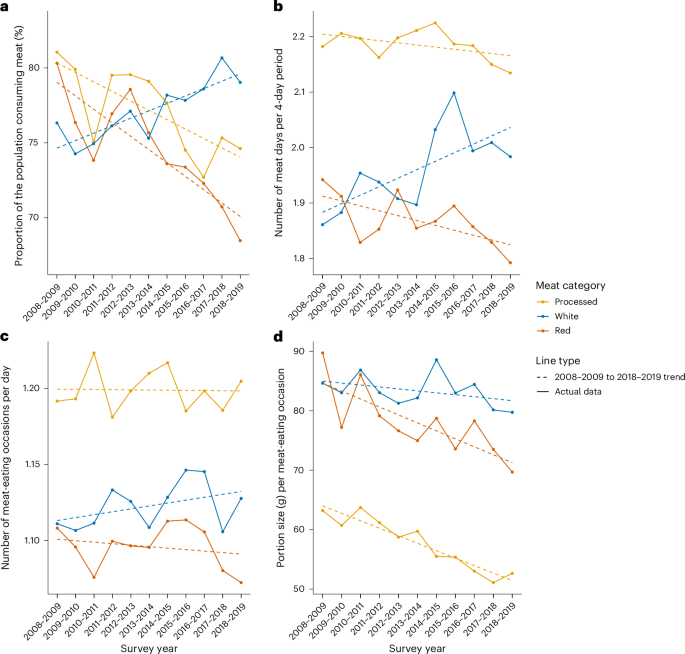Smaller meat portions contribute the most to reducing meat consumption in the United Kingdom
IF 23.6
Q1 FOOD SCIENCE & TECHNOLOGY
引用次数: 0
Abstract
Reducing meat consumption can help improve environmental and health outcomes, yet the effect of specific meat-reducing strategies is context dependent. Here, using decomposition analysis of National Diet and Nutrition Survey data (2008–2009 to 2018–2019), we found that in the United Kingdom, reduced meat portions had the largest impact on total meat consumption decline (52%), followed by fewer meat-eating days (24%), fewer meat consumers (17%) and fewer meat-eating meal occasions (7%). Understanding meat consumption behaviour patterns is key for more effective policies. Strategies to change meat consumption patterns remain poorly understood. Using decomposition analysis, this study shows that the decline in UK meat consumption is driven by the consumption of smaller portions of meat, followed by reducing the number of days and occasions on which meat is consumed.


在英国,肉类份量越小越有助于减少肉类消费
减少肉类消费有助于改善环境和健康结果,但具体的减少肉类消费策略的效果取决于具体情况。在此,通过对全国膳食与营养调查数据(2008-2009 年至 2018-2019 年)进行分解分析,我们发现在英国,肉类份量的减少对肉类总消费量的下降影响最大(52%),其次是食肉天数减少(24%)、肉类消费者减少(17%)和食肉用餐次数减少(7%)。了解肉类消费行为模式是制定更有效政策的关键。
本文章由计算机程序翻译,如有差异,请以英文原文为准。
求助全文
约1分钟内获得全文
求助全文

 求助内容:
求助内容: 应助结果提醒方式:
应助结果提醒方式:


